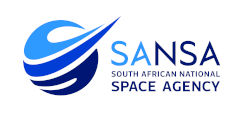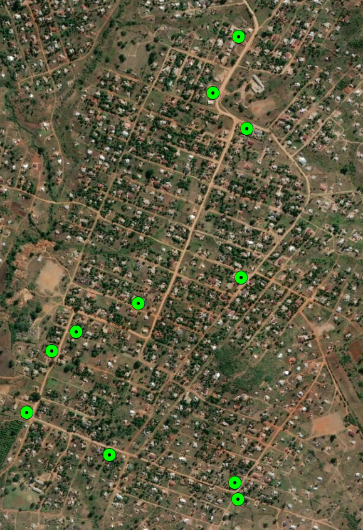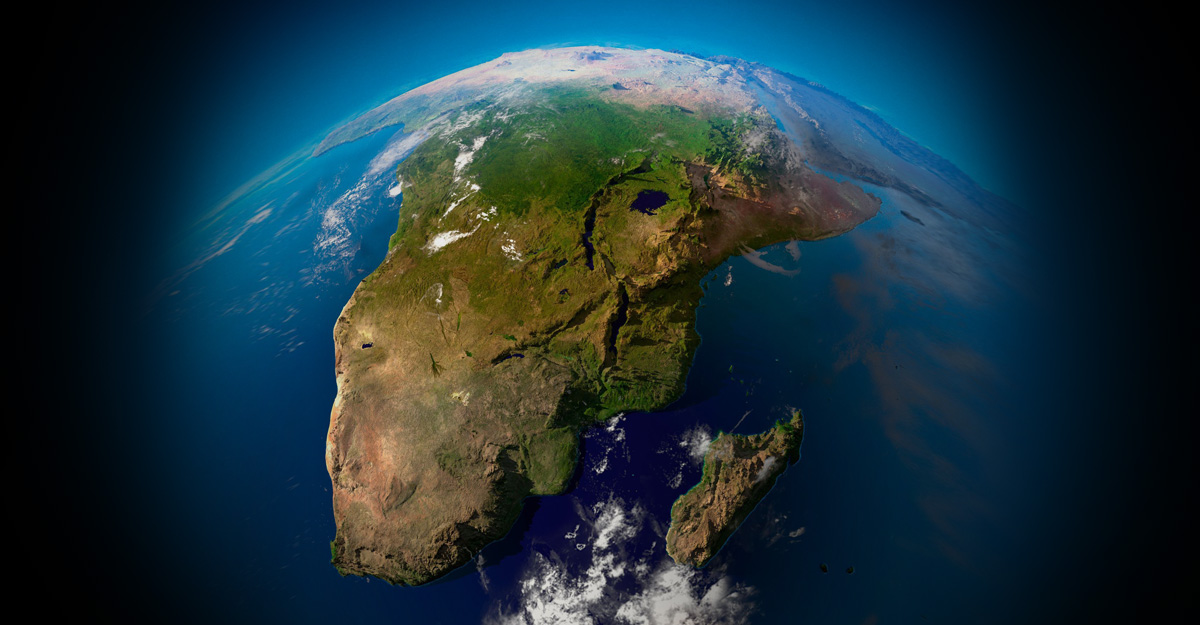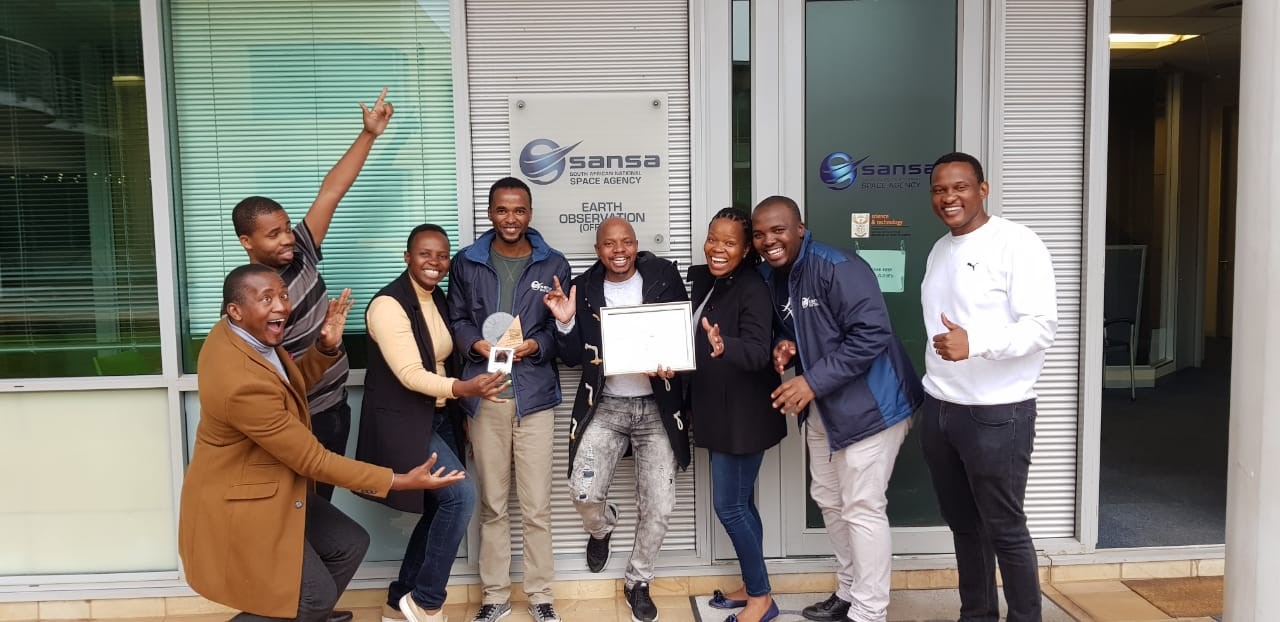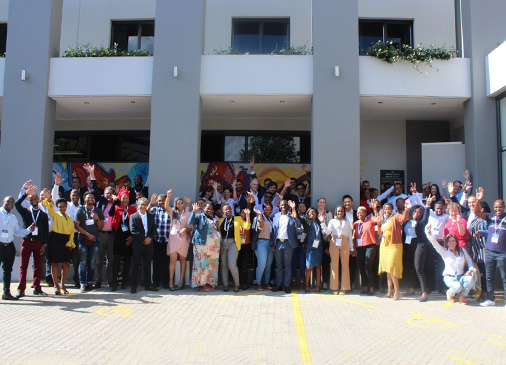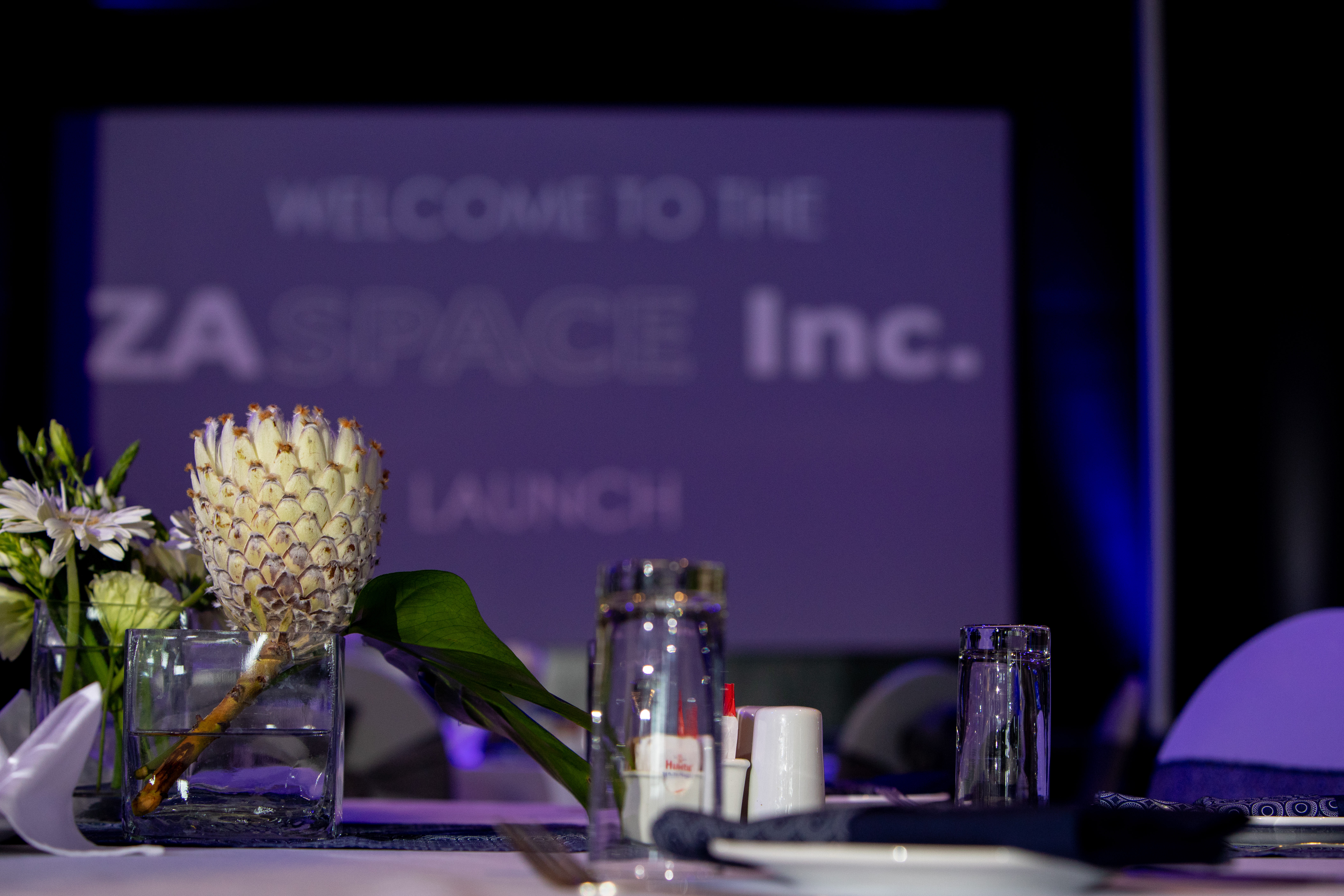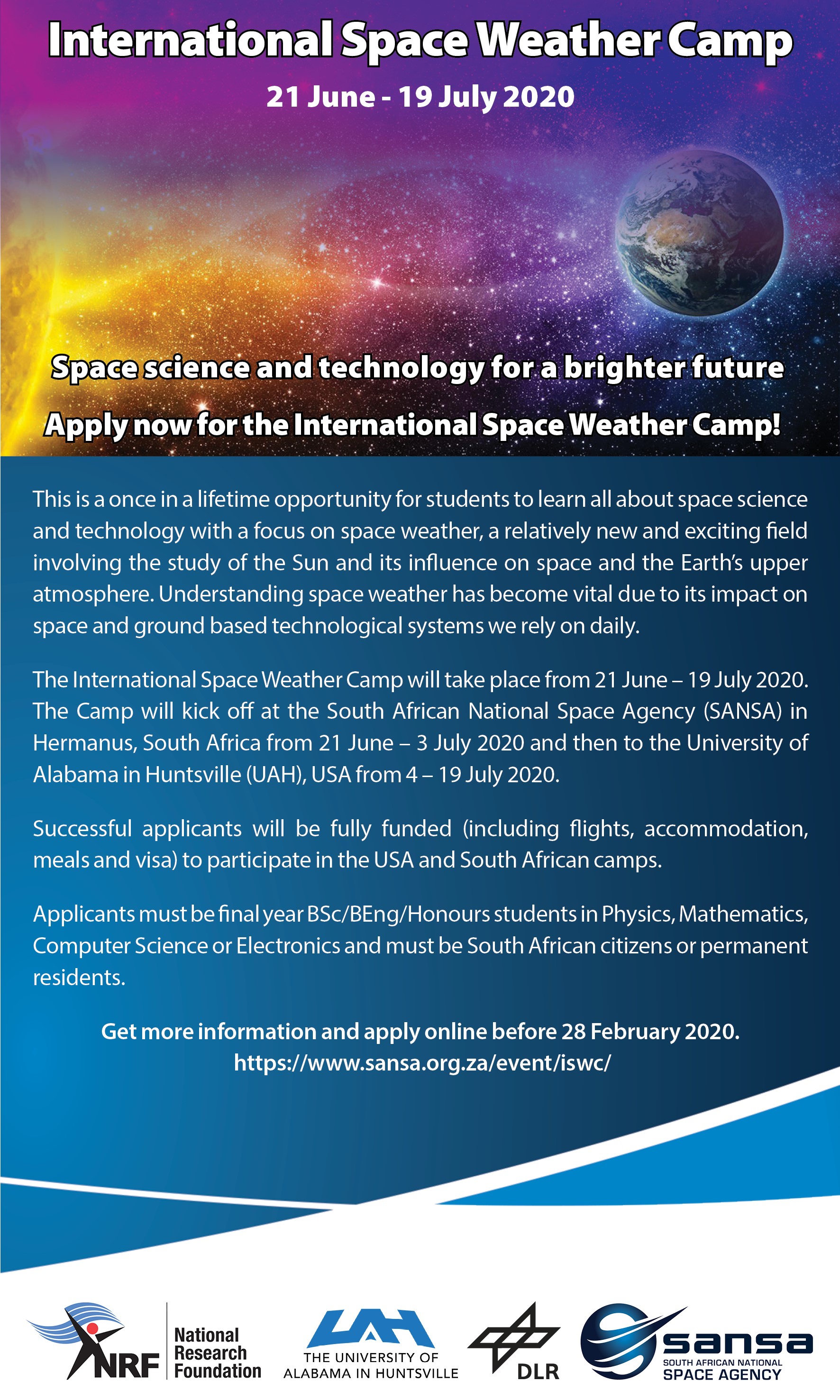07 Apr Space solutions support Government’s COVID-19 containment
The COVID-19 pandemic has been described as the greatest challenge that the world has faced since the second world war. Its impact, in terms of both loss of life and reduced economic growth, has been devastating. South Africa, although at an early stage of the pandemic, is entering uncharted territory with increasing rates of infection. A key factor in the fight against the pandemic is the rapid availability of appropriate information in the hands of key decision makers. [caption id="attachment_5718" align="alignleft" width="504"] Gauteng informal settlements[/caption]
The South African National Space Agency (SANSA), through its twin mandates to acquire, disseminate and distribute space based data and information for decision making, as well as coordinating the South African Space Sector, is aligning itself and the South African Space Sector’s capabilities and capacities towards the fight against COVID -19. The objective is to provide decision makers with relevant space derived spatial information and tools to support evidence based decision making in their efforts at implementing a national response to mitigate the COVID-19 pandemic.
Gauteng informal settlements[/caption]
The South African National Space Agency (SANSA), through its twin mandates to acquire, disseminate and distribute space based data and information for decision making, as well as coordinating the South African Space Sector, is aligning itself and the South African Space Sector’s capabilities and capacities towards the fight against COVID -19. The objective is to provide decision makers with relevant space derived spatial information and tools to support evidence based decision making in their efforts at implementing a national response to mitigate the COVID-19 pandemic.
20 Mar Message from SANSA CEO on COVID-19
[caption id="attachment_5592" align="alignleft" width="425"] Corona Virus[/caption]
Dear Valued Stakeholder, in light of the coronavirus (COVID-19) pandemic that has reached our shores and following the decision by our President, H.E. Cyril Ramaphosa, declaring a National Disaster, we assure you that we have taken every precautionary measure and will continue to do so to help limit the spread of the virus.
We wish to reassure you that our highest priority remains the health and safety of our Stakeholders and Team Members and we are implementing appropriate action to ensure that there is appropriate hygiene standards in all SANSA facilities for anyone using our facilities.
Unfortunately, we have had to postpone many of our planned meetings and events, including SpaceOps 2020. We have also restricted visits to our facilities by the public and external clients, as an added precautionary measure. We remain committed to ensuring that we will continue to offer services with minimal disruption to our customers; except where it is beyond our control.
Corona Virus[/caption]
Dear Valued Stakeholder, in light of the coronavirus (COVID-19) pandemic that has reached our shores and following the decision by our President, H.E. Cyril Ramaphosa, declaring a National Disaster, we assure you that we have taken every precautionary measure and will continue to do so to help limit the spread of the virus.
We wish to reassure you that our highest priority remains the health and safety of our Stakeholders and Team Members and we are implementing appropriate action to ensure that there is appropriate hygiene standards in all SANSA facilities for anyone using our facilities.
Unfortunately, we have had to postpone many of our planned meetings and events, including SpaceOps 2020. We have also restricted visits to our facilities by the public and external clients, as an added precautionary measure. We remain committed to ensuring that we will continue to offer services with minimal disruption to our customers; except where it is beyond our control.
17 Mar Space Agency Public Events and Tours Temporarily Halted
Following the announcement made on 15 March 2020 by the South African President, Cyril Ramaphosa, regarding the coronavirus (COVID-19) pandemic, the SANSA public tours, learner visits and the space talk public lecture series will be cancelled with immediate effect until
19 Feb SANSA & NASA sign a Deep Space Communications study agreement.
The South African National Space Agency (SANSA) and The National Aeronautics and Space Administration (NASA) recently signed an agreement to partner in a study activity that will be implemented shortly. The study agreement will see NASA and SANSA collaborate in conducting
10 Dec The South African National Space Agency (SANSA) wins the 2019 GEO SDG Award
SANSA team who contributed to this award from left: Dime Kekana, Lesiba Tsoeleng, Nale Mudau (project leader), Morwapola Mashalane, Mahlatse Ganyago, Nosiseko Mashiyi, Asanda Lamba and Willard Mapurisa SANSA is very proud to have received this award on South Africa’s behalf
03 Dec SND 2019 confirms big economic opportunity in SA space sector
South Africa’s space sector remains fertile ground for growth, both economically and technologically, despite the country’s current economic slump. This was a key take home message from the second annual Space for National Development conference (SND 2019), hosted by SANSA
03 Dec ZASpace Inc launched
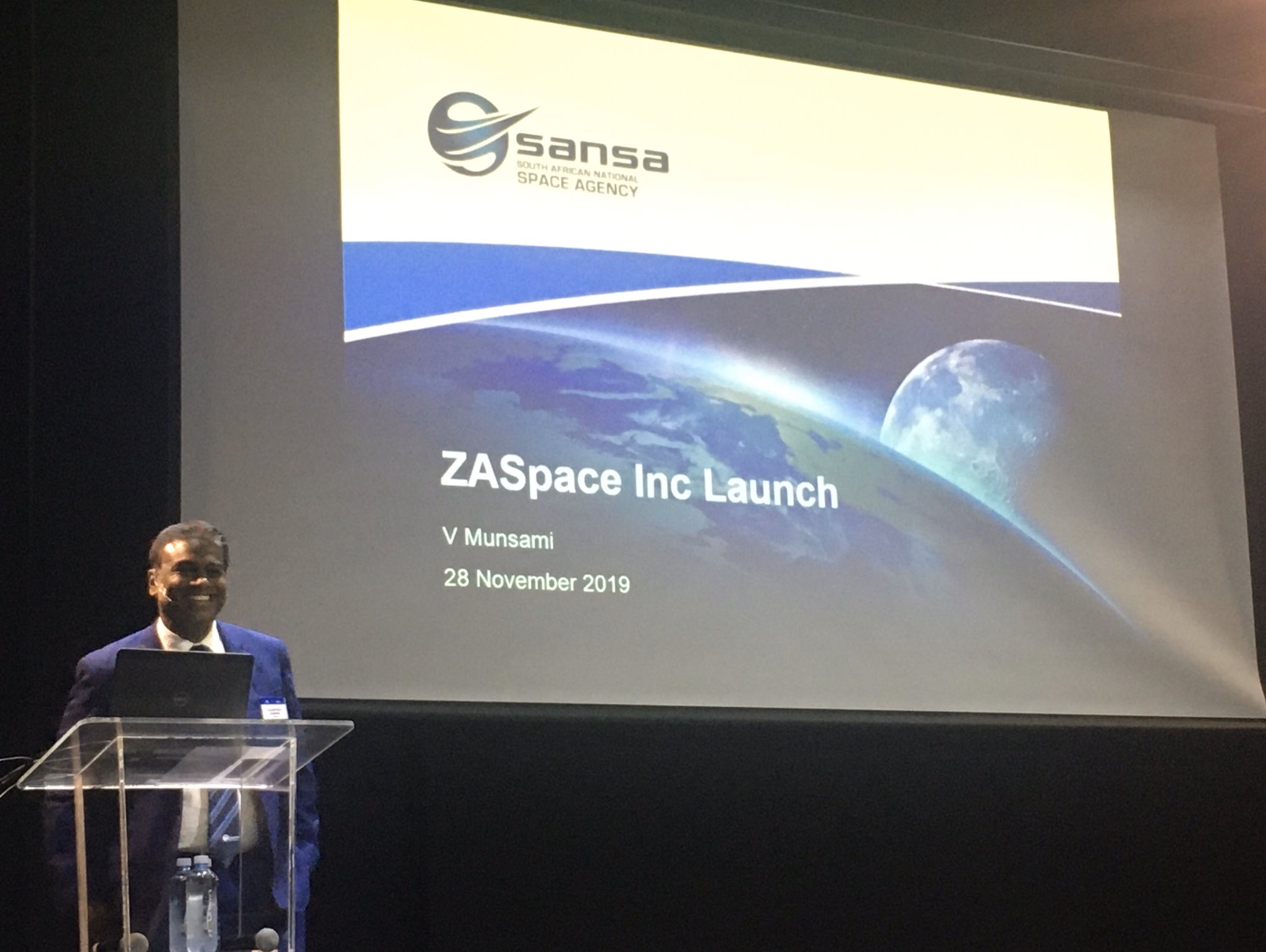 First of its kind industry body to grow South Africa’s geospatial sector
When we think of space, we generally think of SciFi shows such as Star Trek, or humanity’s current plans to send manned missions to Mars. Most people don’t think about space as a business enabler, and yet that is exactly what it has become over the years.
The convergence of earth observation, space navigation and positioning, telecommunications and location intelligence is generating massive opportunities for companies in every sector. Observing the Earth, location and geospatial intelligence have rapidly gravitated to the core of digitisation and innovation.
In fact, the geospatial intelligence domain across the world is set to grow exponentially as more and more business data is integrated with location information across enterprise level functions. This rapid rate of growth can be accredited to the continuous technology advancements in the industry, the democratisation of geospatial information and integration with advancing digital technologies resulting in innovative business models such as Uber.
First of its kind industry body to grow South Africa’s geospatial sector
When we think of space, we generally think of SciFi shows such as Star Trek, or humanity’s current plans to send manned missions to Mars. Most people don’t think about space as a business enabler, and yet that is exactly what it has become over the years.
The convergence of earth observation, space navigation and positioning, telecommunications and location intelligence is generating massive opportunities for companies in every sector. Observing the Earth, location and geospatial intelligence have rapidly gravitated to the core of digitisation and innovation.
In fact, the geospatial intelligence domain across the world is set to grow exponentially as more and more business data is integrated with location information across enterprise level functions. This rapid rate of growth can be accredited to the continuous technology advancements in the industry, the democratisation of geospatial information and integration with advancing digital technologies resulting in innovative business models such as Uber.
21 Nov Space Agency Holiday Programme
Space is limited book now!
19 Nov International Space Weather Camp 2020
Get more information and apply online before 28 February 2020 https://archive.www.sansa.org.za/event/iswc



